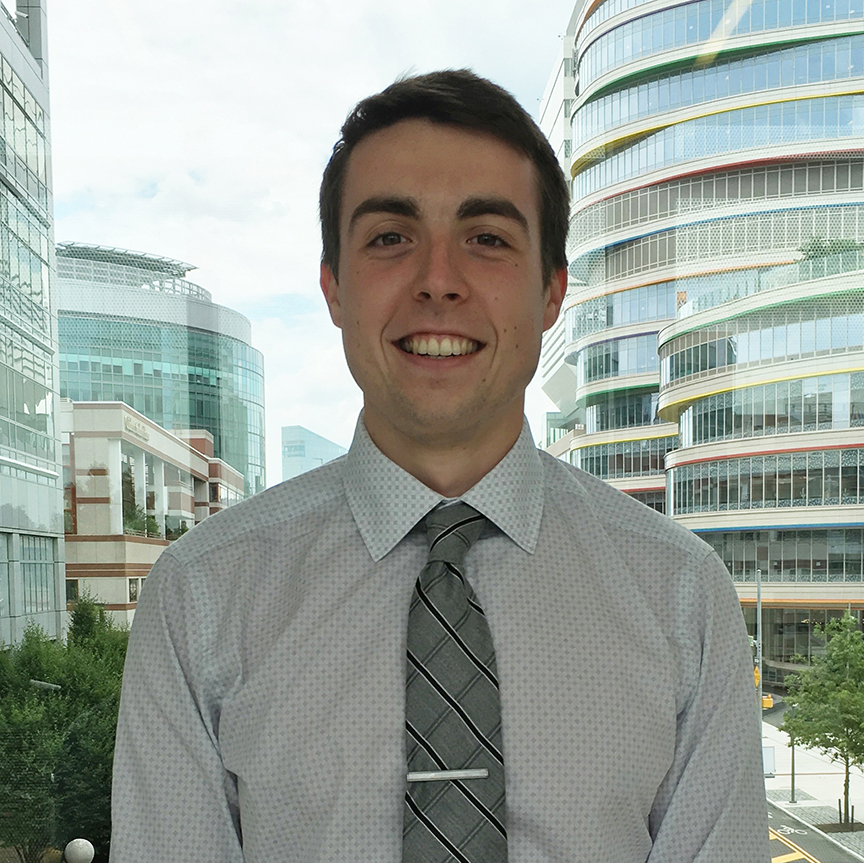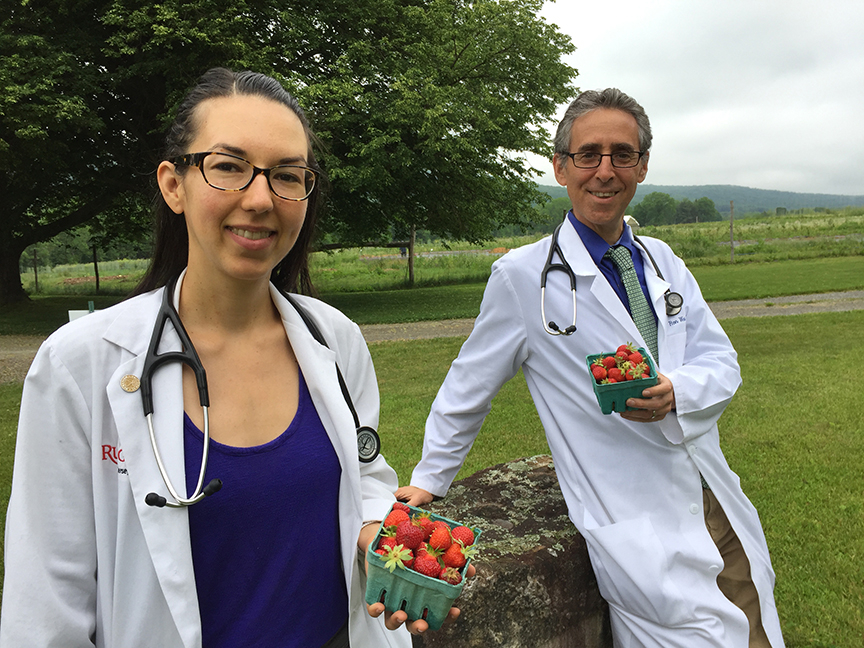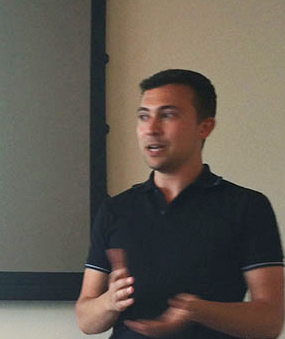Taking a Year Off from Medical School
Students pursue special projects as they prepare to launch their careers

'Students generally return to medical school reassured that they've chosen the right career path for them. They have the advantage of having worked somewhat independently and experienced being part of a team making a difference in people's lives or in meaningful research endeavors.'– James Hill, associate dean of student affairs, New Jersey Medical School
Nearing an end to the challenging four years of medical school, a number of students take a long timeout – delaying the completion of their degree for a year – to immerse themselves in a yearlong project they hope will fuel the start of their careers.
These future physicians choose to suspend their formal education to become “student scholars” in various ways, spending their year way from school in specially designed fellowships or self-created research projects, in a field they ultimately hope to pursue.
“Students generally return to medical school reassured that they’ve chosen the right career path for them,” says James Hill, associate dean of student affairs at New Jersey Medical School. “They have the advantage of having worked somewhat independently and experienced being part of a team making a difference in people’s lives or in meaningful research endeavors. They have a better idea of what to anticipate when they graduate from medical school.”
Every year, 20 to 35 students at each Rutgers medical school – Robert Wood Johnson Medical School (RWJMS, enrollment: 684) and New Jersey Medical School (NJMS, enrollment: 738) – secure student scholar domestic or international projects, most taking the year away after their third year, although some take it a year earlier.
Brandon Imp, who recently returned to RWJMS for his fourth year, spent the last year at the University of California, San Francisco, studying the pathogenesis of HIV-associated neurocognitive disorder, which affects about half of those living with HIV. Under the guidance of his mentor, Victor Valcour, Imp developed two projects studying HIV-infected people enrolled in the Women's Interagency HIV Study and the African Cohort Study, presented research multiple times and submitted his work to conferences and journals for publication.
"I plan to incorporate research into my career as an HIV primary care physician, and this past year allowed me to build a strong foundation of research development and execution," Imp says. "I learned how to be confident in my research and how to write a manuscript for publication."
Amit Chaudhari, pursuing a doctorate as well as a medical degree at NJMS, recently began a fellowship in Washington, D.C., at the National Institutes of Health’s National Center for Advancing Translational Science, focusing on efforts to strengthen clinical trials and increase his exposure to health care policymaking.
“I am studying whether trials proposed are relevant to a prevalent disease,” he says. “We want to understand what’s worked in the past and how to apply it to make translational research more efficient today. Then, if we feel more funding is needed, we will lobby federal agencies for additional money.”
Julia Kirchner of NJMS, approaching the end of a student scholar apprenticeship in November, is working partly on an organic Hunterdon County farm learning the farming business, and partly with a Morris County physician learning to use nutrition as a tool of medicine. Under the supervision of Ron Weiss, an NJMS assistant professor of clinical medicine, she works with patients committed to plant-based diets.
“Generally, they show a drop in cholesterol, improvement in blood pressure, improvement in joint and headache pain and better blood sugar regulation,” says the Watchung Hills High School graduate, now considering her own farm-based medical practice one day.
Brendan Striano wanted to prepare himself for clinical research, the reason the RWJMS student chose to spend his student scholar year at Children’s Hospital of Philadelphia, where he is currently a Ben Fox research fellow, concentrating on pediatric orthopedics. His focus is to develop and publish research papers from clinical questions generated from discussions during surgical rounds and meetings with the clinical research team. His role also includes data collection and analysis.
“I like the autonomy this provides,” Striano said. “I can generate my own research questions and suggest ideas for research papers.”
What appeals to many in the student scholar program is the freedom they have to create learning experiences based on their own career direction, says Carol Terregino, RWJMS senior associate dean for education and associate dean for admissions.
“All students are encouraged to make their medical education experience as fulfilling as possible in a way they choose,” says Terregino. “The student scholar year can lead to publishing opportunities and acceptance into highly competitive residencies, and it generally gets our students even more excited about the careers they are about to begin.”